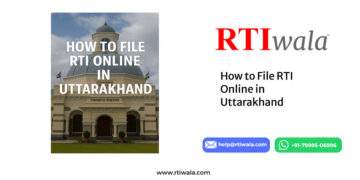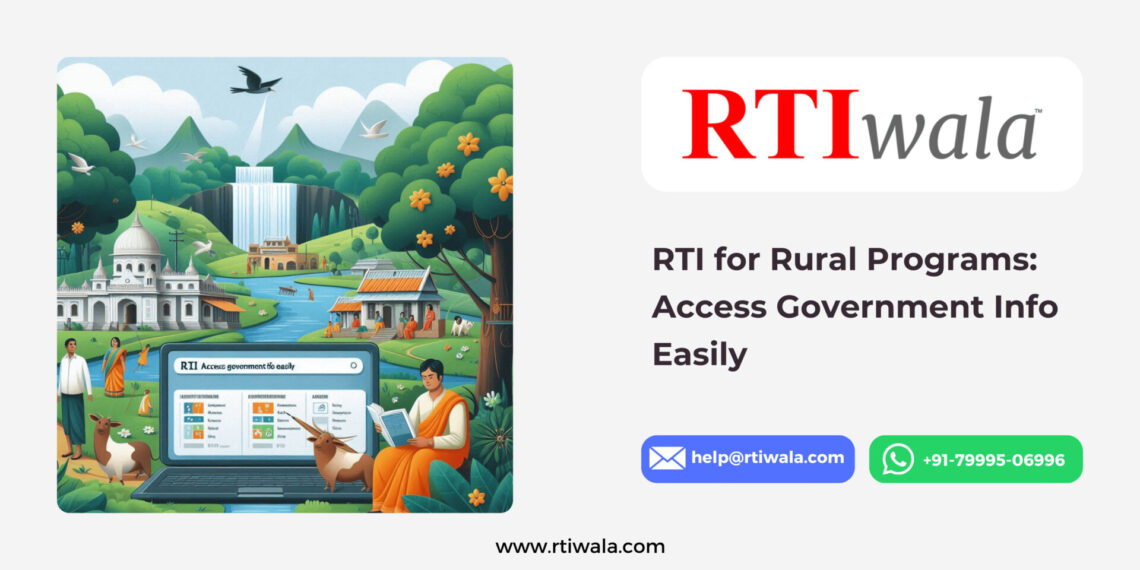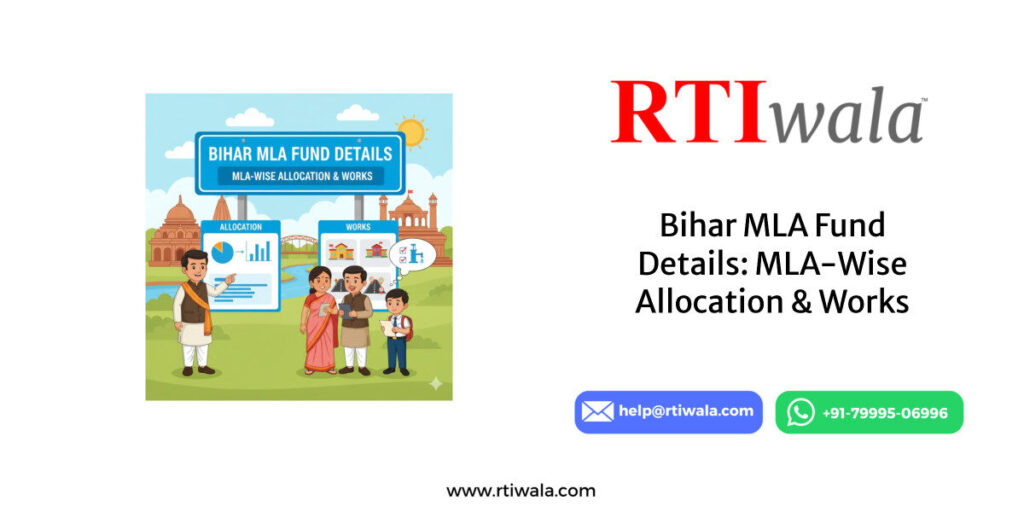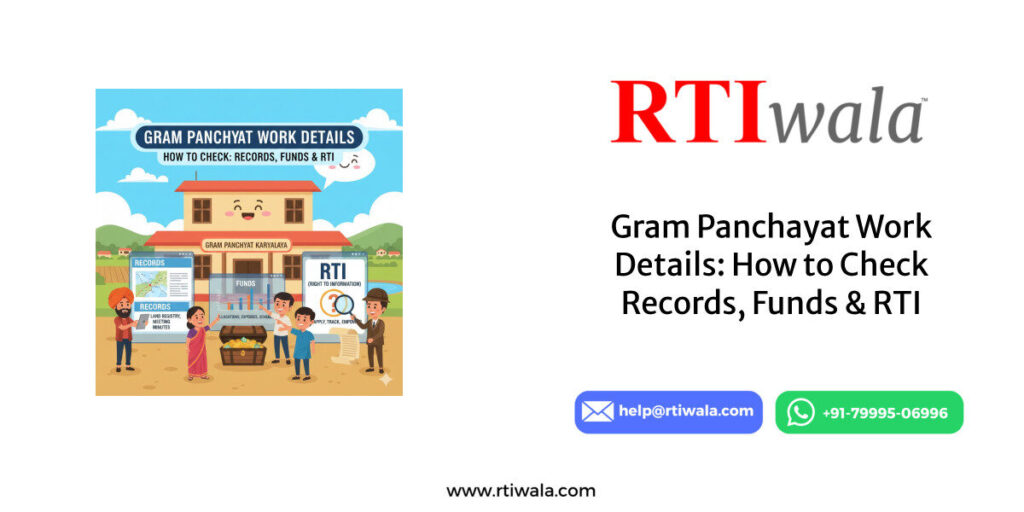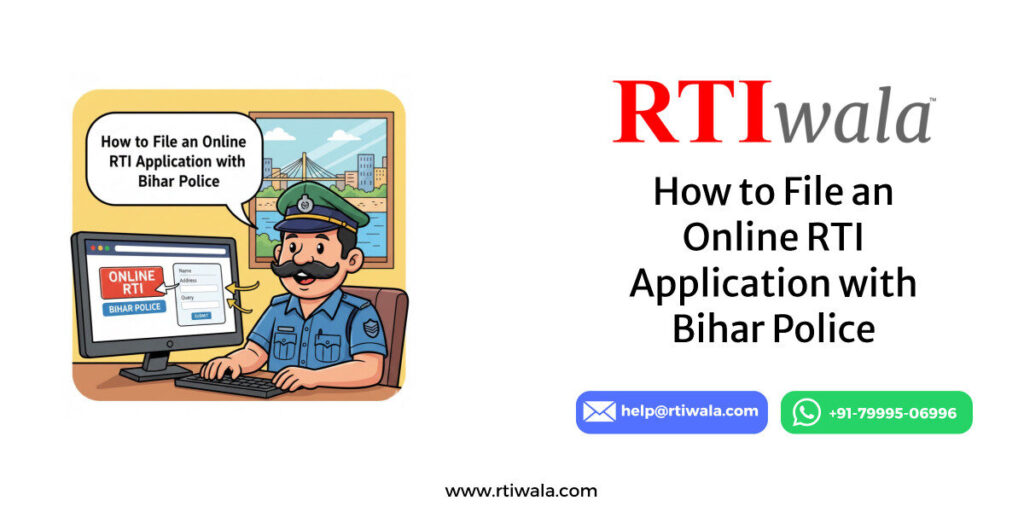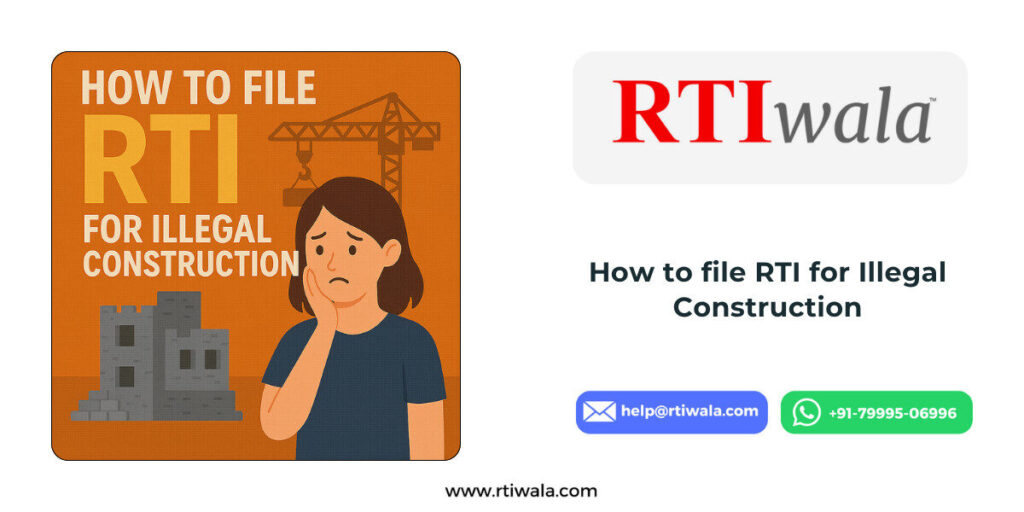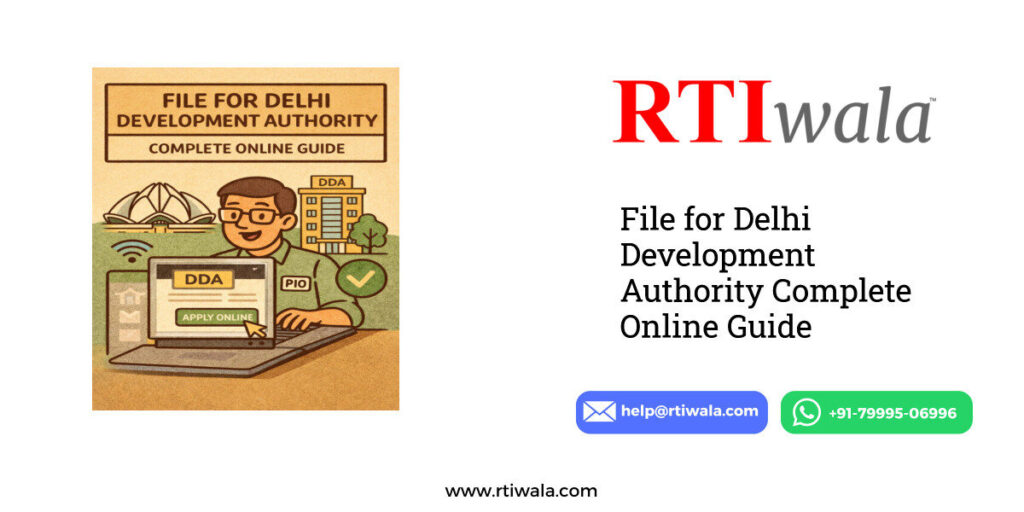India’s rural areas are the backbone of the nation, and the government has introduced several programs to promote rural development. These programs aim to improve infrastructure, provide employment opportunities, enhance agricultural productivity, and uplift the living standards of rural communities. However, accessing information about these programs can be challenging due to bureaucratic complexities and a lack of transparency. This is where the Right to Information (RTI) Act comes into play.
In this article, we will guide you on how to use the RTI Act to obtain crucial information about government programs for rural development. We’ll also discuss how RTIwala can assist you in navigating this process effectively, ensuring you get the information you need to make informed decisions.
Table of Contents
- Introduction to Government Programs for Rural Development
- Understanding the RTI Act and Its Importance
- How to File an RTI for Information on Rural Development Programs
- Common Challenges in Using RTI and How to Overcome Them
- How RTIwala Can Assist You in Filing RTI Applications
- Examples of Successful RTI Applications in Rural Development
- FAQs
- Conclusion
Introduction to Government Programs for Rural Development
The Government of India has launched various programs aimed at rural development. These programs cover a wide range of areas, including infrastructure development, agricultural support, healthcare, education, and employment generation. Some of the prominent programs include:
- Pradhan Mantri Gram Sadak Yojana (PMGSY): Aimed at improving road connectivity in rural areas.
- Mahatma Gandhi National Rural Employment Guarantee Act (MGNREGA): Provides employment opportunities to rural households.
- Deen Dayal Upadhyaya Grameen Kaushalya Yojana (DDU-GKY): Focuses on skill development and employment generation for rural youth.
- Pradhan Mantri Awaas Yojana – Gramin (PMAY-G): Aims to provide affordable housing in rural areas.
These programs are crucial for the socio-economic development of rural communities. However, understanding how these schemes are implemented and whether they are reaching the intended beneficiaries can be difficult. This is where filing an RTI can be a powerful tool.
Understanding the RTI Act and Its Importance
The Right to Information (RTI) Act, 2005, is a law that empowers Indian citizens to request information from any public authority. The act promotes transparency and accountability in government operations by allowing citizens to access information about various government programs, including those aimed at rural development.
Using the RTI Act, you can request information on:
- Implementation of Government Programs: Learn how specific programs are being implemented in your area.
- Allocation of Funds: Get details about the funds allocated for rural development projects and how they are being used.
- Beneficiary Lists: Access lists of individuals or communities that are benefiting from government programs.
- Progress Reports: Obtain reports on the progress of ongoing rural development projects.
By filing an RTI, you can ensure that government programs are being implemented effectively and that the benefits are reaching the right people.
How to File an RTI for Information on Rural Development Programs
Filing an RTI is a straightforward process. Here’s a step-by-step guide to help you get started:
Step 1: Identify the Information You Need
Before filing an RTI, be clear about the specific information you want. For example, you might want details about the implementation of a particular rural development scheme in your village or information about the funds allocated for building roads under PMGSY.
Step 2: Draft the RTI Application
Write a concise application stating the exact information you are seeking. Mention the relevant government program or department, and be specific about the details you need. The application should be addressed to the Public Information Officer (PIO) of the concerned department.
Step 3: Submit the Application
You can submit your RTI application either online or offline:
- Online Submission: Visit the RTIwala website and follow the instructions to submit your application.
- Offline Submission: Send your application via post to the PIO of the concerned department. Make sure to include any required fee (usually a nominal amount) through a postal order or bank draft.
Step 4: Pay the Fee
A nominal fee is required to file an RTI. For online submissions, the fee can be paid electronically. For offline submissions, the fee can be paid through a postal order or bank draft.
Step 5: Wait for the Response
The concerned department is required to respond to your RTI request within 30 days. If the information is not provided or is incomplete, you have the right to file a First Appeal.
Common Challenges in Using RTI and How to Overcome Them
While filing an RTI is relatively simple, you may encounter some challenges:
Delayed Responses
Sometimes, government departments delay providing the requested information. In such cases, you can file an appeal with the appellate authority.
Incomplete Information
You might receive partial information that doesn’t fully answer your query. If this happens, you can file another RTI or an appeal to get the complete details.
Denial of Information
In some cases, public authorities may refuse to provide the requested information, citing various reasons. However, the RTI Act allows you to appeal such decisions and seek the information you need.
By being aware of these challenges and knowing how to address them, you can effectively use the RTI Act to obtain the information you need.
How RTIwala Can Assist You in Filing RTI Applications
Filing an RTI can be daunting, especially if you are unfamiliar with the process. RTIwala is here to simplify the process for you. Here’s how RTIwala can help:
Expert Guidance
RTIwala offers expert advice on drafting your RTI application, ensuring that your request is clear, precise, and more likely to receive a positive response.
End-to-End Assistance
From drafting to submission, RTIwala handles the entire RTI filing process on your behalf, saving you time and effort.
Online Submission
If you’re unfamiliar with the online RTI filing process, RTIwala will take care of it for you, ensuring that your application is submitted correctly and on time.
Follow-Up and Appeals
If your RTI request doesn’t receive a response or if the information provided is incomplete, RTIwala assists with follow-ups and filing appeals to ensure you get the information you need.
Using RTIwala services ensures that your RTI application is handled professionally, increasing your chances of obtaining the desired information.
Examples of Successful RTI Applications in Rural Development
Here are some examples of how RTI has been used to access information on government programs for rural development:
Case Study 1: Accessing Information on Rural Road Construction
A resident of a rural village in Maharashtra filed an RTI to obtain details about the funds allocated for road construction under the Pradhan Mantri Gram Sadak Yojana (PMGSY). The information revealed that the funds were not being utilized properly, leading to corrective action by the authorities.
Case Study 2: Uncovering Misuse of MGNREGA Funds
An NGO used RTI to uncover discrepancies in the distribution of funds under the Mahatma Gandhi National Rural Employment Guarantee Act (MGNREGA). The information obtained through RTI helped expose corruption and led to reforms in the program’s implementation.
These examples highlight how RTI can be a powerful tool in ensuring transparency and accountability in government programs for rural development.
FAQs
Q1: Can I file an RTI online for information on rural development programs?
Yes, you can file an RTI online through the RTIwala website or the relevant government portal.
Q2: What kind of information can I request through RTI?
You can request any information related to rural development programs, including fund allocation, beneficiary lists, and progress reports.
Q3: What should I do if I don’t receive a response to my RTI request?
If you don’t receive a response within 30 days, you can file an appeal with the designated appellate authority.
Q4: How can RTIwala assist me in filing an RTI?
RTIwala offers expert guidance, end-to-end assistance, and support in filing RTIs, ensuring that your request is properly handled and followed up on.
Q5: What are the fees for filing an RTI?
There is a nominal fee for filing an RTI, which can be paid online or via postal order.
Conclusion
Filing an RTI for information on government programs for rural development is an effective way to ensure that these programs are implemented transparently and that their benefits reach the intended recipients. By following the steps outlined in this guide, you can access the information you need to hold authorities accountable. Remember, if you need assistance, RTIwala is here to help you navigate the RTI process smoothly and efficiently.
Don’t let a lack of transparency keep you in the dark—use RTIwala to unlock the information you need and ensure that rural development programs work for you and your community!














